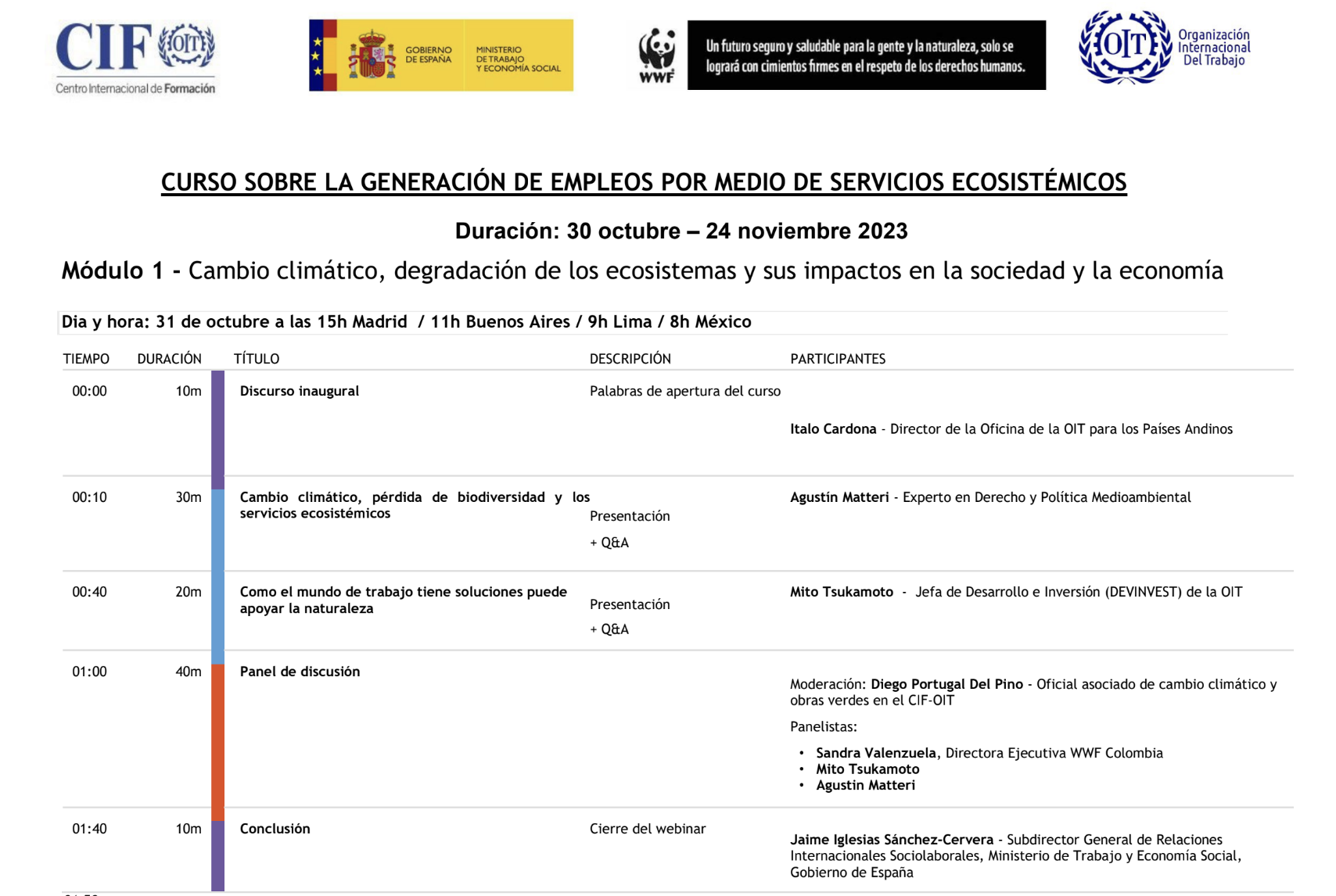Today, in an exciting milestone for NbS Hub, we had the honor of participating in the opening of the course “Job Generation through Ecosystem Services” offered by the International Labour Organization (ILO) to decision-makers throughout the Latin America and Caribbean region.
Agustín Matteri, our expert in environmental law and policy, had the privilege of delivering the first lecture of Module 1, focusing on climate change, biodiversity loss, and ecosystem services in the context of the Latin America and Caribbean region.
In this opening session, we were joined by officials from the ILO, representatives from the WWF organization, and the Ministry of Labour of Spain, which has been a generous donor for the organization of this course.
Several key conclusions were highlighted during this presentation:
- The immense potential for creating new jobs if Latin America harnesses its status as a biodiversity hotspot, holding 40% of the world’s biodiversity and ecosystem services despite occupying only 16% of the land.
- The importance of establishing clear policy frameworks for ecosystem services in all development financing projects, as well as socio-environmental safeguard frameworks.
- The implementation of digitization technologies, such as blockchain and digital MRV, to prevent delays in processes, increase transparency, and ensure integrity and urgency in our actions.
- The need to address informality in employment affecting the region and combat capital flight, not only by investing in countries but also by ensuring that financial resources stay there.
- Emphasizing the opportunity offered by digital jobs to encourage demographic diversification in small cities and towns near natural ecosystems.
- The importance of conservation funding enabling the provision of seed capital and reducing financial risks for sustainable initiatives by local populations, sometimes requiring flexibility in conservation regulations and protected areas. Always under sustainability criteria that allow people to coexist harmoniously with nature, breaking the trend of displacing ecosystems, migrating to large cities, and exploiting them with consumption systems that often obscure their origin.
This opening of the course marks an exciting chapter in our commitment to promoting nature-based solutions and building a sustainable future for Latin America and the Caribbean. We will continue to work tirelessly to address current and future challenges in the fields of conservation and sustainable development.
For more information about our work and initiatives, feel free to explore our website and contact us.
Together, we can build a more sustainable and resilient future!


